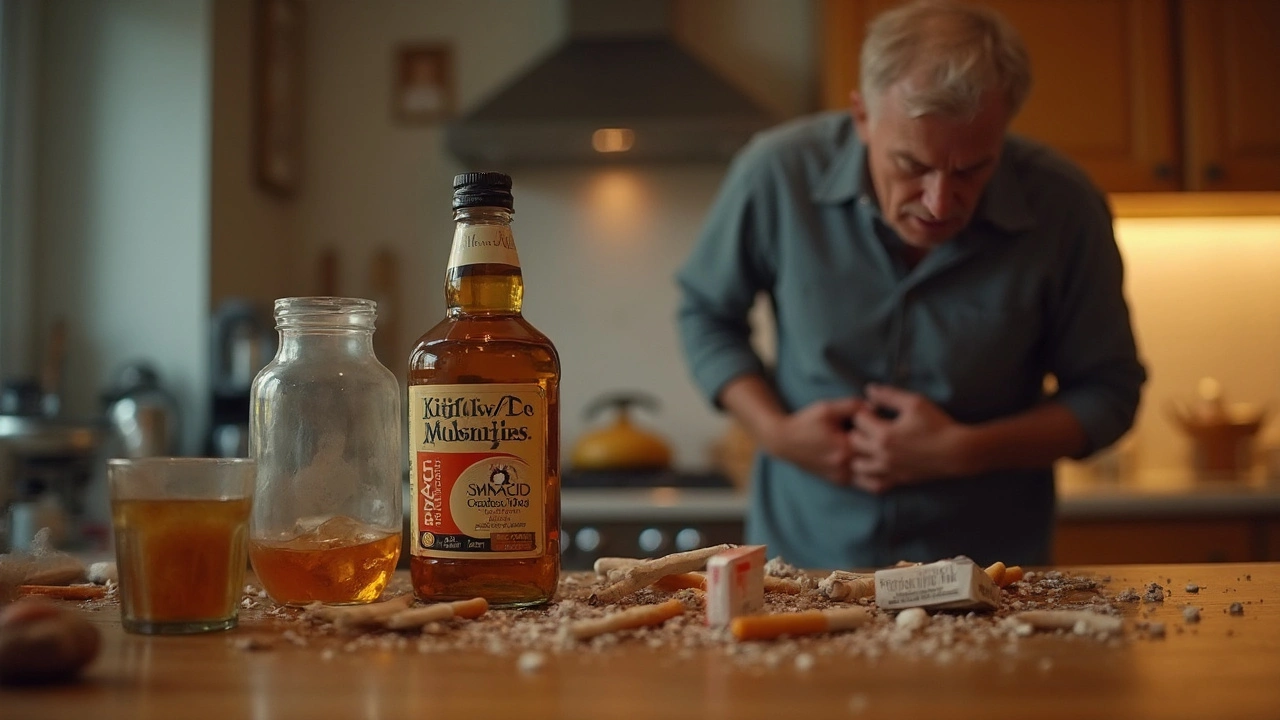Smoking and Heartburn: Why It Happens and How to Ease the Burn
Ever felt that sharp, uncomfortable burn right after a cigarette? You’re not imagining it – smoking can actually turn up the heat in your chest. In this guide we’ll break down exactly how nicotine and other smoke chemicals mess with your digestion, and give you quick, everyday steps to feel better.
How Smoking Triggers Heartburn
The main culprit is the lower esophageal sphincter (LES), a ring of muscle that keeps stomach acid where it belongs. When you smoke, nicotine relaxes the LES, so acid can splash back up into the esophagus. At the same time, smoke irritates the lining of the throat and increases the amount of acid your stomach produces. The result is a perfect storm for heartburn, especially after meals or when you lie down.
Even occasional smoking can have an impact. A single cigarette can lower LES pressure for up to an hour, which means you’re vulnerable to reflux long after the smoke clears. The more you smoke, the more often that pressure drops, so chronic smokers often experience daily heartburn.
Practical Steps to Ease the Burn
First, consider cutting back or quitting. Your body starts repairing LES function within a few days of stopping, and most people notice less heartburn within a couple of weeks. If quitting feels overwhelming, try nicotine patches or gum to keep cravings at bay while giving your LES a break.
While you’re working on smoking, adjust a few habits that can lessen the burn. Eat smaller meals and avoid large, fatty, or spicy foods that already trigger acid. Wait at least two to three hours after eating before lying down – gravity helps keep acid down.
Elevate the head of your bed by a few inches. This simple tilt uses gravity to keep acid where it belongs while you sleep. If you need quick relief, an over‑the‑counter antacid or a short‑acting H2 blocker can neutralize acid fast, but don’t rely on them forever.
Stay hydrated, but sip water rather than gulp large amounts at once. Water can help wash acid down, but drinking too much can stretch the stomach and increase pressure on the LES. Also, try to limit caffeine and alcohol, both of which relax the LES just like nicotine.
Finally, keep a symptom diary. Note when heartburn strikes, what you ate, and whether you smoked. Patterns often emerge, and the diary can be a powerful tool when you discuss your situation with a doctor or pharmacist.
In short, smoking makes heartburn worse by loosening the muscle that should keep acid out of your throat. Cutting back, changing meal habits, and using simple home tricks can dramatically lower those painful episodes. Give these tips a try, and you’ll likely feel the burn ease before you know it.

How Smoking and Alcohol Fuel Acid Indigestion: Causes, Facts, and Relief
Acid indigestion is more than just a nuisance—smoking and alcohol can make it a constant guest in your gut. This article uncovers how cigarettes and booze wreck your digestive comfort, with real-world stats and tips for relief. You’ll learn practical steps to ease symptoms, plus surprising facts about why these habits hurt. If you deal with heartburn, you’ll want to know what your next drink or smoke could trigger. We break it down with solid info, not scare tactics.
Read More